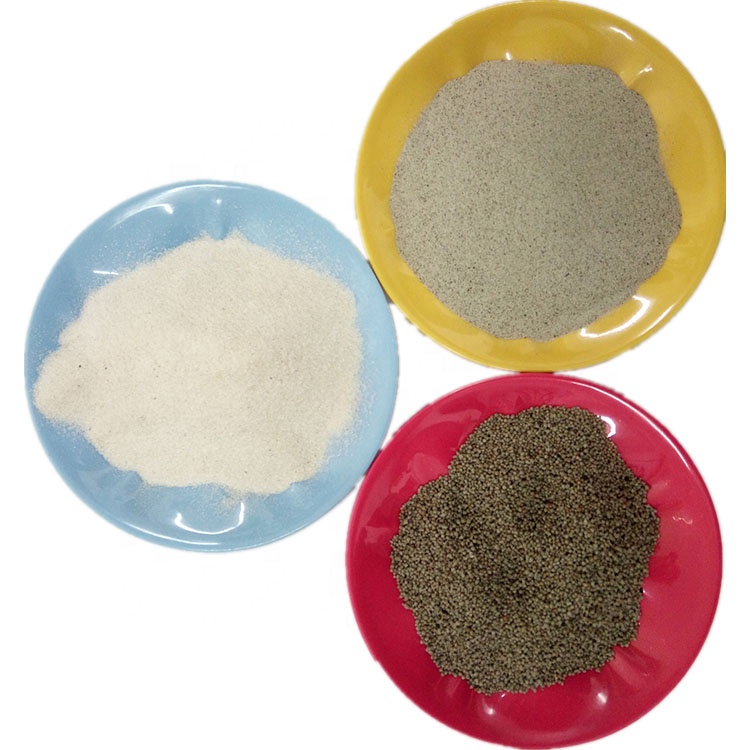The main chemical composition of floating beads is the oxide of silicon and aluminum, in which the content of silicon dioxide is about 50-65%, and the content of aluminum oxide is about 25-35%. Because the melting point of silica is as high as 1725 ℃ and that of alumina is 2050 ℃, they are all high refractory materials. Therefore, floating beads have very high refractoriness, generally up to 1600-1700 ℃, making them excellent high-performance refractories. Light weight, thermal insulation. The floating bead wall is thin and hollow, the cavity is semi vacuum, only a very small amount of gas (N2, H2 and CO2, etc.), and the heat conduction is very slow and very small. Therefore, the floating beads are not only light in weight (volume weight 250-450 kg / m3), but also excellent in thermal insulation (thermal conductivity 0.08-0.1 at room temperature), which lays a foundation for them to play an important role in the field of light thermal insulation materials.
High hardness and strength. Because the floating bead is a hard glass body formed by silica alumina mineral phase (quartz and mullite), its hardness can reach Mohs 6-7, static pressure strength can reach 70-140mpa, and its true density is 2.10-2.20g/cm3, which is equivalent to that of rock. Therefore, the floating beads have high strength. Generally, the light porous or hollow materials such as perlite, boiling rock, diatomite, sepiolite and expanded vermiculite have poor hardness and strength. The thermal insulation products or light refractory products made from them have the disadvantage of poor strength. Their shortcomings are just the strengths of floating beads, so floating beads have more competitive advantages and wider uses. The particle size is fine and the specific surface area is large. The natural size of floating beads is 1-250 μ M. The specific surface area is 300-360cm2 / g, similar to that of cement. Therefore, floating beads can be used directly without grinding.
Fineness can meet the needs of various products, other lightweight thermal insulation materials are generally large particle size (such as perlite, etc.), if grinding will greatly increase the capacity, so that the thermal insulation is greatly reduced. In this respect, floating beads have advantages. Excellent electrical insulation. The floating beads are excellent insulating materials and non-conductive. Generally, the resistance of insulator decreases with the increase of temperature, but the resistance of floating bead increases with the increase of temperature. This advantage is not possessed by other insulating materials. Therefore, it can make insulation products under high temperature conditions.
Post time: Feb-01-2021


